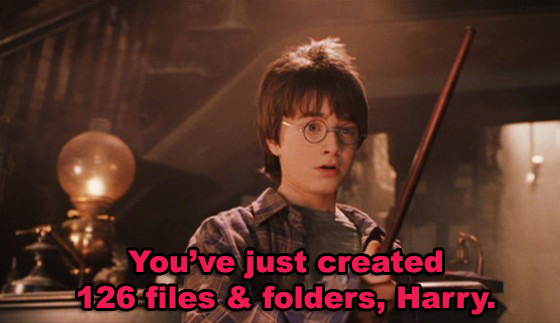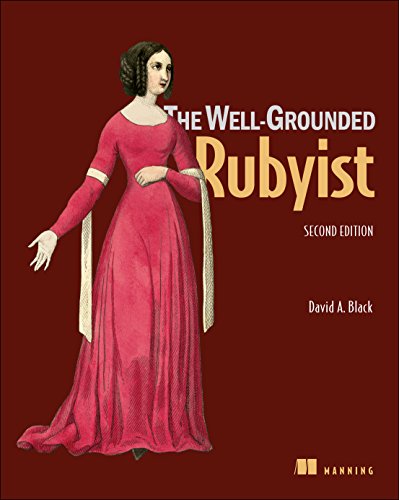I want to share my experience of the last couple of days on the Makers Academy Ronin course. It's been a very difficult time and I hope by putting this out there I may be able to help others who hit that wall of frustration and feel it's just not worth it.
Because it really, really is!
The last 48 hours of the Makers Academy Ronin course have been the most frustrating couple of days I've experienced. By Tuesday afternoon the constant barrage of problem after problem finally got the better of me, and I admit I was pretty pissed off with the whole Makers approach to teaching/learning.
I'm not going to go into all the issues apart from to say I've spent two days STUCK!
Of course I'd been stuck before, but nothing like this. Most, well really
all of the problems came about because I am doing the course on Nitrous - coding in the cloud. It hadn't really been an issue so far. I usually have to google a few
additional steps to get things to run, but I was used to that. I really
like Nitrous, having everything on the one screen works for me.
But this week Nitrous didn't want to play. And it wasn't just me who was having trouble. The guys doing the course on Linux were experiencing similar issues.
Two days of - Googling. Trying. Failing. Googling. Trying. Failing. And repeat to fade...
Two days without getting past Step 0 of the week's challenge. Very very frustrating.
Of course we asked our tutor for help, and
some came, but not instantly and not anywhere near as much as I felt
I
should be getting. We were always asked to theorise why the problem
was happening. But I didn't want to offer a theory as to why things
weren't working - I just wanted them working!!! I wanted to get on with the challenge and not fall behind. We were constantly
reminded that problem solving is a major part of web development, and we
should be pleased that we were solving
some issues. But the
mindset I was in, I couldn't see that at all. I just felt that I'm
paying for this course and I can't do the bloody thing as I can't
install the gems/software needed, and if I do I can't get then to talk
to each other or work properly, and we're largely being left on our own
to find out why.
We were told that the offline guys
were not having these issues - mainly because they are all using macs!
Well bully for them! It was no consolation, and I think it just pissed
me off a little bit more. I can't afford to rush out and buy a mac so this is the only option I have.
By the time of the Tuesday
afternoon standup I'd just about had it, and by 5pm I checked out still at Step 0! Feeling I'd wasted two days.
After dinner I sat back at my laptop. Still a bit pissed, I had no intention of coding instead I thought I'd catch up on my woefully neglected blog as I have half a dozen posts scribbled on paper that I needed to write up. Once opened I looked back at a
blog post I'd written on Day 1 of the course. I re-read something that really hit home. It was something we were told...
For the vast majority of this course we will be stuck!
And that's OK. Because a developer spends his day solving problems, some
of which have likely never been tackled by anyone else before. It's the
job.
I realised that for the last two days I'd basically been working more in line with how, I assume, an actual web developer would most likely be working. He hasn't got anyone there to hold his hand through a challenging issue, all he has is his ability to search for answers by offering the correct questions.
Here's the real challenge though. And it involves changing your mindset towards this unique learning experience.
As I said I'm paying for this course, so naturally you want to get as much out of it as you can, and naturally if you aren't progressing it's easy to feel as if you're wasting both your time and money. I think that's where all my frustrations were coming from, as if I'd been working for a company I'd have come out of the previous 48 hours feeling as if I'd really
really earned my pay, as even though new problems arose, I
had fixed multiple issues that were absolute bastards!
I suddenly got it. Being able to theorise the exact nature of the problem, being able to break it down into smaller issues (rather than
googling a specific error message which is likely not going to offer results) and methodically attack them one at a time is a huge step towards success. Makers aren't getting us ready for an exam, they are getting us ready for a career as a web developer. And I knew that, or at least I'd read and been told that. But again, it's quite natural to get frustrated with the system if you feel that the person you're paying to teach you something isn't actually
teaching you something. But Makers is not traditional learning. Our
tutor would be doing us no favours by constantly jumping in, waving a magic coding wand (I want one of them) and fixing
things, because in a couple of months time when the course is finished
who would we call then? What do I say in an interview when asked how I'd solve a problem? "Er, I'd call Sam?".
If anything my two "wasted days" had potentially been the two most important days of the course so far.
I willfully neglected my blog again and spent three hours problem solving. Maybe it was my switch in mindset, I don't know, but I ended Tuesday night with everything set-up and working. I completed all of the first stage of the challenge. The program racked up fine, and I deployed to Heroku.
Heroku didn't want to play. And I was stuck again!
And you know what? That's fine. I went to bed looking forward to solving it in the morning. (And I did).
I'm approaching every day now with the philosophy that there will be problems. Many of them will be utter bastards. But I'll end each day having beaten some of them in to submission. Whether that's here on the Makers Academy Ronin course or in a career as a web developer.





























